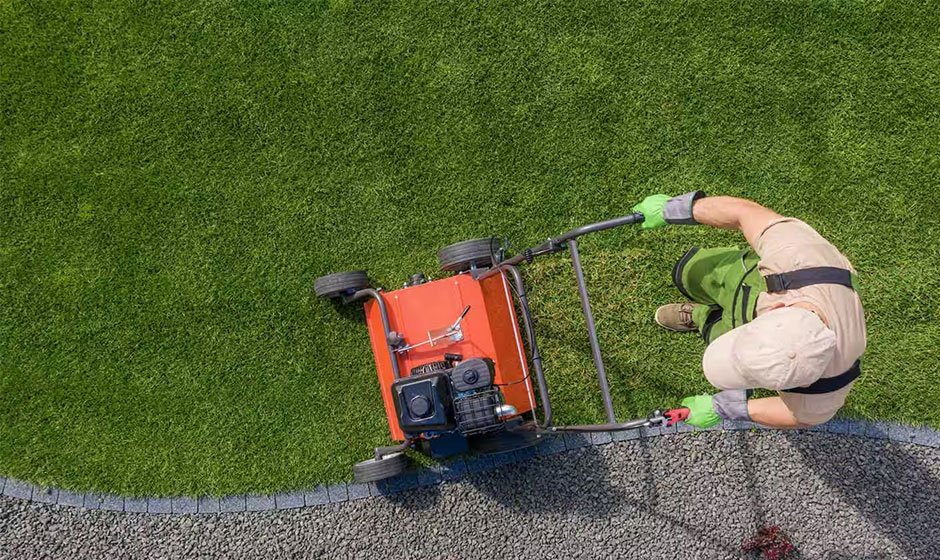Breathing New Life into Your Lawn: The Importance of Lawn Aeration Explained

A Lush Green Canvas: The Dream of Every Homeowner
There’s something almost magical about a lush, green lawn. It’s not just the colour or the softness underfoot; it’s how a well-maintained lawn can transform a home’s entire look and feel. It becomes a vibrant canvas, setting the stage for flower beds, trees, and outdoor living spaces. However, achieving and maintaining such a lawn requires more than just regular watering and mowing. Aeration is one of the most crucial yet often overlooked steps in lawn care. Understanding the importance of this process can be the key to unlocking the full potential of your lawn.
Unveiling the Secret: What is Lawn Aeration?
Breaking Down the Process
At its core, lawn aeration involves creating small holes in the soil beneath your lawn. These openings allow air, water, and nutrients to penetrate the grassroots more effectively. There are two main methods of aeration: spike aeration, which pokes holes in the ground with a solid tine and plug aeration, which removes a core or plug of grass and soil from the lawn. Both methods aim to break up compacted soil and thatch, the layer of dead grass and roots that can build up on a lawn’s surface.
The Benefits Unearthed
The advantages of a properly aerated lawn are extensive. Aeration improves the soil’s structure and encourages more profound root growth, leading to a healthier, more resilient lawn. This process also enhances drainage, reducing the likelihood of waterlogging and associated lawn diseases. Furthermore, aeration creates a better environment for overseeding, as the seeds can directly contact the soil, improving germination rates.
The Core of the Matter: Why Your Lawn Needs Aeration
Tackling Soil Compaction and Thatch Buildup
Over time, the soil becomes compacted due to foot traffic, mowing, and the natural settling of the earth. This compaction makes it difficult for roots to grow, restricting their access to essential nutrients and water. Similarly, a thick thatch layer can prevent moisture, oxygen, and nutrients from reaching the soil. Aeration breaks through these barriers, revitalising your lawn from the roots up.
Timing is Everything
The best time to aerate your lawn depends on your grass type. Cool-season grasses benefit most from aeration in early fall or spring, while warm-season grasses are best aerated in late spring or early summer. This timing ensures that your lawn can heal and fill open areas after the aeration process, just as its growth peaks.
Local Focus: Lawn Aeration in Calgary
In regions with specific climate conditions, Lawn aeration in Calgary lawn aeration can be especially beneficial. Calgary’s varying temperatures and precipitation levels throughout the year can lead to soil compaction and thatch buildup, making lawns less resilient to stress and more susceptible to disease. Local lawn care professionals understand these unique challenges and can provide tailored advice and services, ensuring your lawn remains a vibrant, welcoming space year-round.
DIY vs. Professional Aeration
While DIY aeration is possible with the right equipment, professional services often yield the best results. Professionals can assess your lawn’s specific needs, choose the appropriate aeration method, and ensure the process is done at the right time and with the right frequency for your lawn’s grass type and soil condition.
Nurturing Your Lawn Post-Aeration
The Aftercare Essentials
After aeration, continuing to care for your lawn is crucial to maximise the benefits. Watering your lawn deeply but infrequently will encourage more profound root growth. Overseeding soon after aeration can help fill bare spots and improve your lawn’s overall density and colour. Additionally, applying a top dressing of compost or soil mix can enhance soil health, providing a nutrient-rich environment for the grassroots.
The Long-Term View
Lawn aeration should be a regular part of your lawn care routine. Depending on your lawn’s condition, soil type, and grass species, aeration might be needed annually or every two to three years. Keeping a watchful eye on your lawn’s health and responding with aeration when necessary will ensure your lawn stays vibrant and healthy for years to come.
The Green Conclusion: Aeration as a Vital Lawn Care Practice
Lawn aeration might not be the first thing that comes to mind when you think of lawn care, but its impact must be balanced. Aeration breathes new life into your lawn by addressing soil compaction and thatch buildup, improving nutrient uptake, and encouraging deeper root systems. Whether you’re nestled in the heart of Calgary or elsewhere, embracing the practice of lawn aeration will help you achieve that dream of a lush, resilient, green lawn. Remember, a vibrant lawn is not just a matter of pride; it’s a living, breathing space that enhances the beauty and value of your home.



